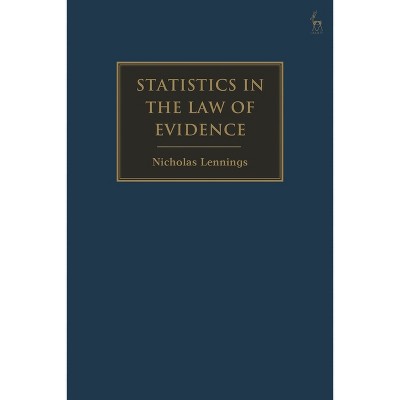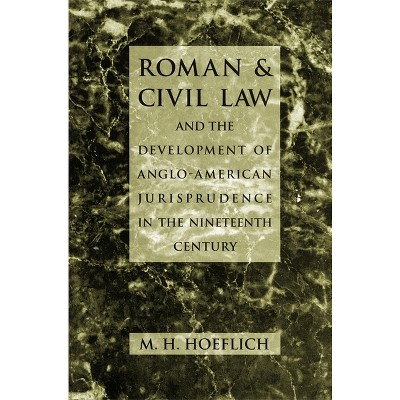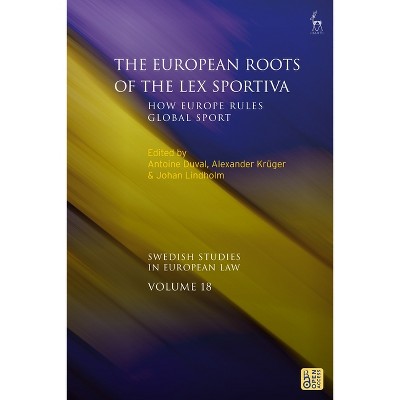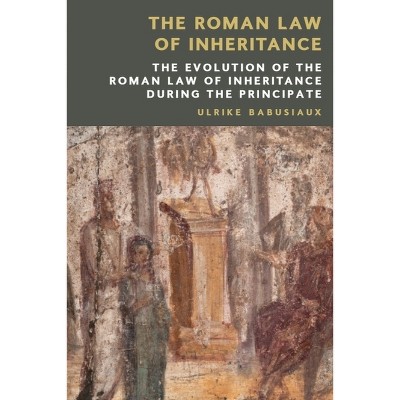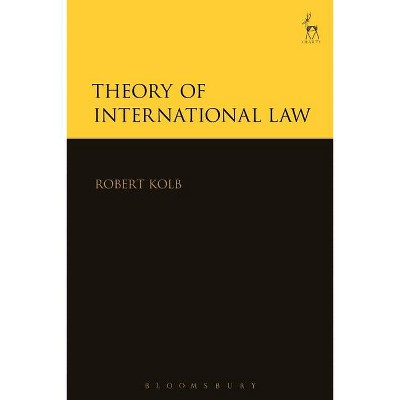Sponsored

Improperly Obtained Evidence in Anglo-American and Continental Law - by Dimitrios Giannoulopoulos (Hardcover)
$115.00
In Stock
Eligible for registries and wish lists
Sponsored
About this item
Highlights
- This is the first book to offer an extensive cosmopolitan, cross-cultural insight into the perennial controversy over the use of improperly obtained evidence in criminal trials.
- About the Author: Dimitrios Giannoulopoulos is the Inaugural Professor of Law at Goldsmiths, University of London, and an Associate Academic Fellow of the Honourable Society of the Inner Temple.
- 328 Pages
- Freedom + Security / Law Enforcement, Evidence
Description
About the Book
"This is the first book to offer an extensive cosmopolitan, cross-cultural, insight into the perennial controversy over the use of improperly obtained evidence in criminal trials. It challenges the conventional view that exclusionary rules are idiosyncratic of Anglo-American law, and highlights the "constitutionalisation" and "internationalisation" of criminal evidence and procedure as a cause of rapprochement (or divergence) beyond the Anglo-American and Continental law divide. Analysis focuses on confessional evidence and evidence obtained by search and seizure, telephone interceptions and other means of electronic surveillance. The law of England and Wales, France, Greece and the United States are systematically compared and contrasted throughout this study, but, where appropriate, analysis extends to other Anglo-American and Continental legal systems, including Australia, Belgium, Canada, Germany, Ireland, Portugal and international criminal courts. The book reviews exclusionary rules vis-a-vis the operation of judicial discretion, and explores the normative justifications that underpin them. It attempts to reinvigorate the idea of excluding evidence to protect constitutional or human rights (the rights thesis), arguing that there is significant scope for Anglo-American and Continental legal systems to place a renewed emphasis on it, particularly in relation to confessional evidence obtained in violation of custodial interrogation rights; we can locate an emerging rapprochement, and unique potential for ECHR jurisprudence to build consensus, in this respect. In marked contrast, remaining divergence with regards to evidence obtained by privacy violations means there is little momentum to adopt a reinvigorated rights thesis more widely"--Book Synopsis
This is the first book to offer an extensive cosmopolitan, cross-cultural insight into the perennial controversy over the use of improperly obtained evidence in criminal trials. It challenges the conventional view that exclusionary rules are idiosyncratic of Anglo-American law, and highlights the 'constitutionalisation' and 'internationalisation' of criminal evidence and procedure as a cause of rapprochement (or divergence) beyond the Anglo-American and Continental law divide.Analysis focuses on confessional evidence and evidence obtained by search and seizure, telephone interceptions and other means of electronic surveillance. The laws of England and Wales, France, Greece and the United States are systematically compared and contrasted throughout this study, but, where appropriate, analysis extends to other Anglo-American and Continental legal systems. The book reviews exclusionary rules vis-Á -vis the operation of judicial discretion, and explores the normative justifications that underpin them. It attempts to reinvigorate the idea of excluding evidence to protect constitutional or human rights (the rights thesis), arguing that there is significant scope for Anglo-American and Continental legal systems to place a renewed emphasis on it, particularly in relation to confessional evidence obtained in violation of custodial interrogation rights; we can locate an emerging rapprochement, and unique potential for European Court of Human Rights jurisprudence to build consensus in this respect. In marked contrast, remaining divergence with regard to evidence obtained by privacy violations means there is little momentum to adopt a reinvigorated rights thesis more widely.
Review Quotes
This book endorses an approach to the exclusion of improperly obtained evidence that prioritises the protection of fundamental rights. It is important that, once in a while, the European Court of Human Rights is reminded of its role as the "conscience of Europe+?; as done in this book elegantly by Giannoulopoulos with regards to evidence obtained in violation of the right to legal assistance. This thorough study and fascinating analysis is a must-read for legal scholars and practitioners, including judges, alike.
This book is a detailed and accessible contextual analysis of the diverging and converging approaches adopted towards the exclusion of improperly obtained evidence across the Anglo-American and continental European legal traditions, written by a scholar with considerable experience of legal practice in both traditions. With its main focus on the law of England and Wales, France, Greece and the United States, the book provides extensive cosmopolitan insight into the role of truth discovery and evidence admissibility in Anglo-American and Continental law and is a major contribution to the literature on cross-cultural studies of human rights and criminal justice.
This fascinating new book considers the endemic question of whether improperly obtained evidence should be excluded from criminal prosecutions. Giannoulopoulos takes a comparative approach, examining the issue in Anglo-American and Continental law jurisdictions. He finds convergences in nations with fundamentally different criminal justice systems, and he uncovers surprising divergences in nations with common legal cultures. Values and goals turn out to matter more than history and legal culture. This is an important book, which should be read by criminal justice and evidence scholars everywhere.
About the Author
Dimitrios Giannoulopoulos is the Inaugural Professor of Law at Goldsmiths, University of London, and an Associate Academic Fellow of the Honourable Society of the Inner Temple.Dimensions (Overall): 9.2 Inches (H) x 6.1 Inches (W) x .9 Inches (D)
Weight: 1.36 Pounds
Suggested Age: 22 Years and Up
Number of Pages: 328
Genre: Freedom + Security / Law Enforcement
Sub-Genre: Evidence
Publisher: Bloomsbury Publishing PLC
Format: Hardcover
Author: Dimitrios Giannoulopoulos
Language: English
Street Date: February 21, 2019
TCIN: 1004683387
UPC: 9781849463829
Item Number (DPCI): 247-21-9891
Origin: Made in the USA or Imported
If the item details aren’t accurate or complete, we want to know about it.
Shipping details
Estimated ship dimensions: 0.9 inches length x 6.1 inches width x 9.2 inches height
Estimated ship weight: 1.36 pounds
We regret that this item cannot be shipped to PO Boxes.
This item cannot be shipped to the following locations: American Samoa (see also separate entry under AS), Guam (see also separate entry under GU), Northern Mariana Islands, Puerto Rico (see also separate entry under PR), United States Minor Outlying Islands, Virgin Islands, U.S., APO/FPO
Return details
This item can be returned to any Target store or Target.com.
This item must be returned within 90 days of the date it was purchased in store, shipped, delivered by a Shipt shopper, or made ready for pickup.
See the return policy for complete information.
Trending Non-Fiction

$19.31
was $20.98 New lower price
4 out of 5 stars with 65 ratings

$18.28
was $19.58 New lower price
4.7 out of 5 stars with 17 ratings

$4.59
MSRP $7.99
Buy 2, get 1 free select books
4.8 out of 5 stars with 123 ratings

$6.20
MSRP $10.95
Buy 2, get 1 free select books
4.8 out of 5 stars with 33 ratings

$7.09
MSRP $9.99
Buy 2, get 1 free select books
4.9 out of 5 stars with 46 ratings







